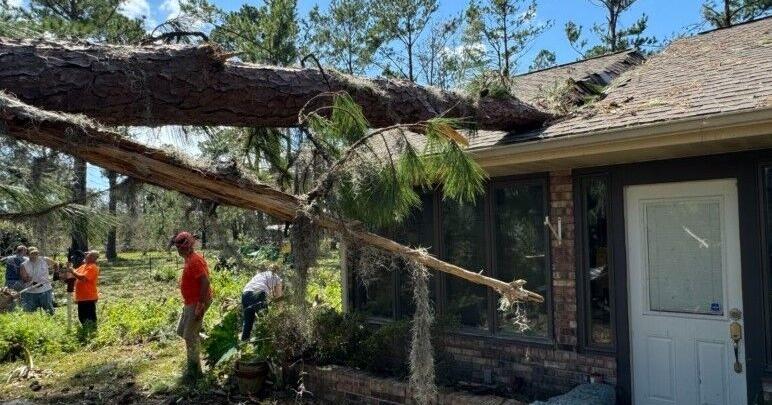

The Aftermath of Hurricane Helene: A Devastating Blow to Childcare Facilities in Western North Carolina
In a tragic turn of events following Hurricane Helene, the childcare landscape in western North Carolina has been severely impacted. Of the 200 childcare facilities affected across 25 counties, a staggering 55 have been left in such disrepair that their reopening appears improbable in the near future. This situation not only poses a challenge for the childcare sector but also for families trying to piece their lives back together in the wake of the disaster.
North Carolina Governor Roy Cooper has voiced his deep concern regarding the strike Hurricane Helene dealt to an already vulnerable childcare system. In a recent press release, he highlighted that the childcare facilities were facing financial struggles even before the hurricane made landfall. “Quality childcare is a critical resource not only for children in storm-impacted counties but for parents working to rebuild their homes and lives,” said Cooper. His statement underscores the vital role that these facilities play, not merely as caretakers of children, but as anchors of support for families navigating the tumultuous aftermath of a natural disaster.
The deep-seated financial instability of childcare facilities in North Carolina was a growing issue long before the hurricane hit. With the pandemic exposing cracks in the system, many centers were struggling with reduced enrollment numbers, staff shortages, and rising operational costs. Hurricane Helene has exacerbated these existing challenges, prompting urgent calls for action from government officials and advocates alike.
In response to the destruction, steps are being taken to expedite the reopening of these essential services. Governor Cooper mentioned that the state is actively engaging with the General Assembly to secure necessary funding. This funding is aimed not just at immediate relief, but also at paving the way for a more sustainable childcare system in the long term. The road to recovery is fraught with hurdles, but it is a critical journey to undertake to ensure stability for families affected by the hurricane.
The Importance of Childcare Post-Disaster
Childcare services are more than just a convenience for working parents; they are a lifeline during crises, offering a sense of normalcy and security for children. When these facilities are compromised, parents are often forced to make difficult choices about their work commitments and family responsibilities. For many in Western North Carolina, the absence of reliable childcare options following Helene’s devastation means that parents must prioritize immediate recovery needs—whether it’s finding temporary housing or securing their livelihoods—over returning to their jobs.
Moreover, the psychological impact of disasters on children can be profound. Stability in their daily environment, including interactions with caregivers and other children, is crucial for their emotional well-being. When childcare facilities are forced to close, children can experience feelings of anxiety and uncertainty, which can hinder their development.
A Community on the Edge
The communities in western North Carolina are banding together to address the fallout from this disaster. Local organizations and volunteers have already started pulling resources to provide support for affected families, from food drives to temporary housing solutions. However, these grassroots efforts cannot fully substitute for the structured environments that licensed childcare facilities provide.
In this context, the role of state support becomes even more imperative. The funding sought by Governor Cooper is not just about rebuilding brick-and-mortar facilities but is also about restoring community networks that families depend upon for support. It’s a collective effort that requires collaboration between state agencies, local governments, community organizations, and businesses.
Looking Ahead: A Call to Action
The situation surrounding childcare in the wake of Hurricane Helene serves as a stark reminder of the importance of having a robust infrastructure to withstand the challenges posed by natural disasters. Policymakers must prioritize the stability of childcare systems, ensuring they have adequate resources not just for recovery but for future resilience.
As western North Carolina navigates these uncharted waters, the focus must also remain on fostering a strong support network for local families. Reliable childcare can empower parents, help children cope with trauma, and ultimately ensure that communities can rise from the ashes stronger than before.
Now more than ever, it’s crucial for residents, advocates, and lawmakers to unite and champion these childcare facilities. Investing in this sector is an investment in the future of North Carolina’s children and families—a commitment that must not be overlooked.


